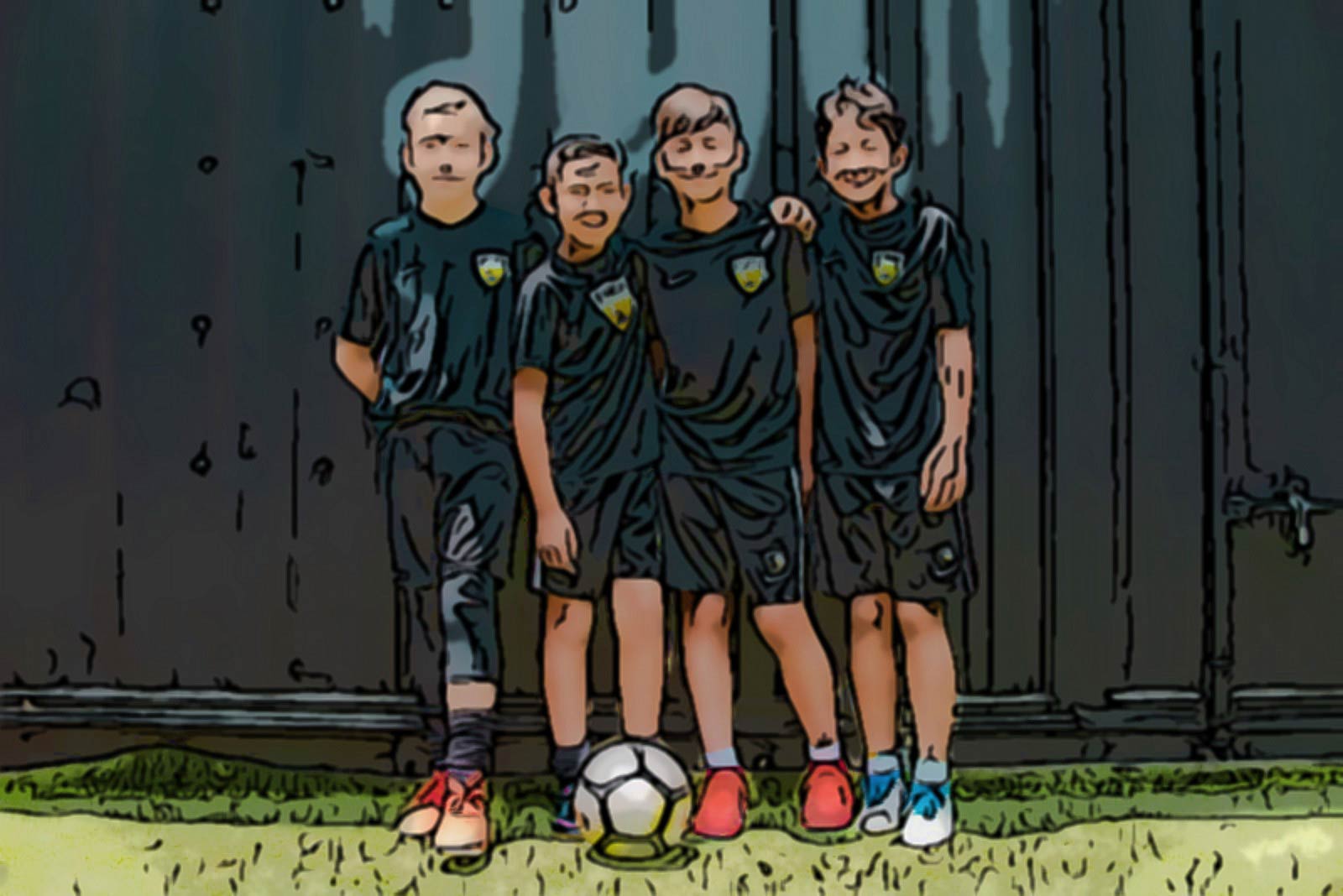The fast-paced world of club soccer isn’t just about shuttling kids to practices, cheering them on at games, and traveling to high profile tournaments on weekends. Spurred on by the extra-charged, competitive atmosphere and the large amounts of money that are exchanging hands, there’s an unfortunate element of bad behavior that’s often bubbling just beneath the cheerful surface. In this second installment of our two-part series, we will explore the remaining three problematic issues that are occurring in American youth soccer — difficult parents, feeble club leadership, and dirty politics.
Many coaches will agree that the hardest part of their job isn’t actually the coaching aspect of soccer. I interviewed a handful of coaches for this story, and the majority stated that dealing with issues outside the realm of instructing their players took up an unnecessarily large amount of their time. Curiously enough, managing parents was at the top of the list for the most unappealing and hardest part of being a coach today.
Dealing with Nightmare Parents
To be fair, most soccer moms and dads do not fall into the category of being a nightmare parent. There is nothing wrong with looking out for the well-being of your child and placing a priority in trying to secure the best options and environment. But there is a definitive line that is drawn between being an actively involved parent — which is good, and being a nightmare parent — which is terrible for everyone else.
Unfortunately, it’s safe to note that most nightmare parents probably don’t even fully realize the extent of their wrongdoings. They continue to support their child’s soccer activities without understanding what a life- and energy-draining experience it is for others who have to regularly interact with them. Blissfully unaware, these parents are the ones who are oftentimes yelling out instructions to players from the sideline or giving unsolicited advice to the coach on tactics, playing time, or team formation. The worst common infraction is speaking negatively on the play, or comparing the ability, of specific young players in front of others.
What makes it inherently challenging for club soccer coaches is that the parents are essentially their “customers.” The nightmare parents are typically the ones who won’t hesitate to subtly reference this point when overstepping their bounds. The unspoken threat of pulling Little Johnny from the team to join another club if the coach doesn’t kowtow to their “suggestions” is often the underlying framework of these awkward conversations. A club’s success and long-term health is oftentimes directly proportional to how much leeway these irksome parents are granted.

Further complicating matters is when these difficult parents are also serving in official capacities within their soccer club. Team managers often provide much needed support with directing rides, handling administrative duties, and although not ideal, even collecting team fees. It puts the coach in a difficult position to make sure these parents are toeing the line when they are providing the grateful coach with critical assistance.
The situation most likely fraught with peril is when the parents are also serving as the club’s board members. Essentially, this equates to the unenviable position of having to coach your boss’ kid. This undoubtedly shifts the power dynamic uncomfortably between the parent and coach. Many of the coaches who were interviewed related to me that soccer parents who held positions of influence oftentimes wielded too much control over their team’s direction.
Bad behavior associated with troublesome parents has become common enough that many clubs and leagues have enacted sideline behavior guidelines while others have issued strict zero tolerance policies. Clubs with strong leadership and culture are unafraid to hand out swift warnings to parents who cross the line. Repeated failures to abide by set rules can be met with expulsion from the club altogether.
Feeble Club Leadership
Ironically enough, the people most responsible for being able to mitigate the aforementioned issues are also often the main source of the biggest problems. Coaches overwhelmingly point to their club’s leadership as determining the scope of their day-to-day headaches. The compass and strength of a club’s board of directors, culture, and Director of Coaching (DOC) appear to largely dictate whether issues are tolerated and allowed to fester or quickly nipped in the bud.
A coach’s level of confidence to deftly deal with issues, and confront parents in particular, is intrinsically tied to how much support they believe they have from upper management. It’s a difficult situation in dealing with overly demanding parents when a club’s director won’t do his part to stand firm in espousing the same principle. Some coaches have expressed frustration at their club’s lack of written policies to deal with reoccurring issues. Worse yet is when coaches attempt to manage difficult parents, only to find themselves powerless to said parents going directly to club management to get what they want.
What makes it inherently challenging for club soccer coaches is that the parents are essentially their “customers.”
The quality of a soccer club’s leadership can often be determined by answering two simple questions. First, is the club setting firm expectations on what is accepted and allowed versus what will not be tolerated, and just as importantly, are they doing their part to ensure and support those endeavors? Second, are the majority of club decisions driven by long-term values and goals, or are they being determined by interim situations such as immediate financial concerns?
The size of a club should not be the determinant factor in how capable it is at creating and upholding an effective club culture. Neither should its financial health dictate the club’s direction, its mission, or values. However, it’s an unfortunate reality that the might or plight of a club’s treasury will most often substantially impact a club’s ongoing decision making process.
Airing the Dirty Laundry
Most people are aware of the more common obvious politics that occur at a club or organizational level. Within club structures, the politics typically revolve around parents in privileged or influential positions maneuvering for better situations for their own children. At organizational levels, there are all too familiar turf wars that occur between competing institutions such as the ECNL and the former U.S. Soccer DA. There are even numerous soccer boards containing pages upon pages of fervent comments from embittered parents railing against the toxic environment these combatting organizations have created.
What’s not often brought to light is something more low-key but probably much more of a prevalent issue — the entity status of a soccer organization and its subsequent benefits and management of its business relationships. Specifically, I’m calling into question the veracity of how many soccer clubs and organizations are formed as non-profit or charitable organizations.
I do believe that the ethos of a soccer club with its main purpose and focus on activities that benefit society fall under the general criteria for a 501(c)(3) non-profit. I also firmly believe that despite having various issues, pay-to-play is better overall for soccer in America. The two can coexist and are also very often combined, where a pay-to-play organization is operating as a nonprofit — which is also perfectly fine. The issue lies wherein a soccer organization is formed as a non-profit and reaps all of the attributed benefits of being one — and yet operates and has intentions that are much more closely aligned with a for-profit business.

What differentiates a charitable non-profit from a for-profit business has to do with its purpose, ownership, and public support. Charitable non-profits will have these three elements:
- A mission that focuses on activities that benefit society and whose goal is not primarily for profit.
- Public ownership where no person owns shares of the corporation or interests in its property.
- Income that must never be distributed to any owners but recycled back into the nonprofit corporation’s public benefit mission and activities.
I find that while most non-profit soccer organizations do meet the first requirement, they most often do not pass the other two requirements … and woefully so.
The benefits of possessing charitable organization status goes beyond simply being able to ask for public donations to further their cause. The biggest boon is probably the financial incentive with the afforded tax exemptions. Other benefits include city and county resources that are provided specifically to non-profit organizations. Access to limited resources such as public fields have been unduly monopolized and even illegally obtained for personal profit by unscrupulous clubs touting their non-profit status as justifiable cause. Many soccer organizations will thusly use their charitable designation to get access to taxpayer-owned fields and services at no cost.
Many people would be surprised to find out that a charitable organization isn’t owned by anyone and that governance responsibility is vested in the board of directors or trustees. This legality would be challenged by the reality of most non-profit soccer clubs that are operated as businesses with the accompanying business owner. Especially in the case where any generated income is to be recycled back into the organization for its mission towards public benefit … that is likely a rare occurrence.
To drive the point further home — what do you think would happen to all of the equipment and remaining money if a non-profit soccer club or charitable organization were to close its business? Do you suppose that the board of directors would distribute all of the nonprofit’s assets to another 501(c)(3) after all debts have been settled as required by law? Highly doubtful. Most likely the funds would be diverted into various personal accounts and you’d probably see all of the remaining soccer equipment posted for sale on Craigslist.
In closing, I don’t begrudge anyone for their efforts towards furthering the growth or even profiting from the beautiful game. However, I will always call it how it is. If you’re operating a non-profit organization, then one should fully abide by the requirements of a charitable organization. Otherwise, be forthright and conduct business as a for-profit entity while paying taxes and competing fairly in the marketplace.
___________
Next week’s Naked Truth article: The MLS Should Learn from the NBA’s Documented History of Great Moves and Horrible Mistakes.
Have a strong reaction or question related to this story? Send us an email with guaranteed anonymity to be featured in our next ‘Anonymous Mailbag.’









Great article!
We left my daughters club in pursuit of a full time coach and the opportunity to develop and move up. The previous club would not move my daughter up even after three coaches told the director seven times. Parents getting involved with operations should be forbidden in the bylaws. Blatant favoritism was a regular occurrence so much to the point that competing players such as my daughter are locked down in positions they had never played in tournaments to allow the favored and often lesser skilled players to try and look good.
This is disgusting and I am still pondering a USYS formal ethics complaint.
I read everything, both parts 1&2, three times. Parts of the article were as if they had been written by the “bad apples” themselves in an effort to admit their crimes to a judge before sentencing in order to get leniency. Uncanny how accurate and spot on the examples were of exactly what is happening in our child’s club, right now, as I write this, over two years from this article’s publication and the comment posted above. That is sadly the most disturbing aspect… that nothing has changed. My child is on the top two best youth soccer teams in the nation, having won the national championship multiple years in a row now. (Notice how careful and even fearful I am not to disclose age/gender as then it could be researched and repercussions suffered from). Makes me ashamed to know we have seen and to some extent participated in every aspect of this article as parents of one of those best players. The cult mentality is enormous within the team players, parents, coaches, directors, all of it. It’s extremely difficult not to get caught up in it when your child is so heavily recruited and “poached” from another well known and competing club. If neither child’s parents have soccer backgrounds, you are preyed upon literally until that contract is signed and then immediately the infighting begins, as your child takes playing time from the previous top players, the resentment becomes staggering both from the parents (two of which have quit this top team over it) as well as the players who are losing their established friends/teammates to the “new kid”. Then of course you are under contract, so as you begin to feel guilty about what you are seeing and your child is feeling, the club begins to literally warn you against trying to leave, that nothing will be discussed about a release, then the stall tactics begin, as multiple coaches, multiple directors, all the way to the top refuse to return calls and texts, even promises and exact dates put in writing and agreed to in person to meet are then ignored. This has now turned us into what a section of this article embarrassed me in reading, “the nightmare parents”. Very sad and toxic situation developing here, with no idea how to move forward for resolution. Is there a mediator that is associated with ECNL or USYS that can offer assistance as a neutral 3rd party??
Our club, the Cleveland Force, is a sell out. One abusive coach (we left that club a few years prior) infiltrated our club to coach the ECNL 2006 age group. Since I refused to let my daughter play with him again, it meant my daughter had no where to go but to the regional team. I warned the club of his tactics prior to accepting this coach into the fold. They even made promises to ME that they would be in control of the situation, and that this coach would have limited say in decisions. That was a lie. They allowed him to bring his own players into our club to fill the top team (he selected based on which parents kissed his ass) which meant other girls, like my daughter were bumped down into the regional team. His team was locked down at 14 while ours had 27. It was ridiculous and all about money. The kicker was every time we scrimmaged them, we tied. The ECNL team was no better than the ECNLR team. just thought to be better. The club forgot all about the girls on the regional team even though our girls went to the ECNL playoffs twice. The other team received an ‘invite” because with their record, they didn’t technically qualify for playoffs. The club did nothing to help our girls with college either. With club soccer they over promise and under deliver. It is all about the money. Run far away. I can’t even imagine how much money I have spent in the last 8 years.
ECNL should regulate the politics and bribes involved in this league. The child’s development and hard work and self esteem are at risk. A nonprofit club should have a whistle blower policy, there shouldn’t be a tax deduction when paying a bribe. It’s no different than a college scandal. These players are “working” to get into a great college.
It’s a disgrace what I’ve seen in youth sports. I won’t go into more detail either for fear of retaliation. There definitely needs to be more oversight by ECNL and other top leagues and mediators for the children involved. I don’t know if it’s all ECNL clubs, our experience and what my child has witnessed and had to endure is mental abuse from the club leadership and entitled parents.